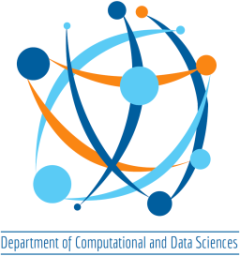Recent Announcements
- All shortlisted applicants must fill out this Google form (due by Nov 14, 23:59 IST). Note that filling out this form is mandatory.
Overview
The mid-year research (Ph.D.) admission process for the Department of Computational and Data Sciences (CDS) involves an oral interview for all shortlisted candidates, to be held in-person in the CDS department. Candidates shortlisted for the interview will receive a call letter or email from the IISc Admissions office (please login to the IISc admissions portal and check for the call letter). The syllabus for the interview, including lab-specific readings, is given in detail below.
About one week before the date of interview, the shortlisted candidates will be sent an email from the CDS department to fill out an online student information Google form. This must be completed and submitted in order to participate in the interview. As part of this, candidates should choose up to three labs in the department for which they will be considered. These labs are described below. If successfully admitted, students will be placed in one of these labs to conduct their research.
In-Person Oral Interview
Each shortlisted applicant will be invited to attend the oral interview to be held at the CDS department in the allotted session as per the applicant’s call letter. During this interview, you will be questioned on the following basic topics, and on advanced topics that are based on your lab preferences.
Basic Topics: Linear Algebra; Probability & Statistics; Programming, Data Structures, Algorithms; Numerical Methods; Ordinary Differential Equations; Discrete Mathematics. Final year undergraduate level preparation is required.
Advanced Topics: You will be questioned on the topics related to labs selected in the student information Google form. The topics for each lab and the prior training expected are listed below. Candidates choosing a lab must be prepared on at least one of the lab-related interview topics.
As this interview process is aimed at selecting the best candidates for the CDS Ph.D. program, candidates should prepare well on their fundamentals, come with a focus and knowledge of the research areas they would like to target in their Ph.D., and have clarity on the preferred lab(s) and the kind of work done in them. Review the research topics and the papers from the labs you are interested in.
List of labs that are admitting students
The following labs (BCL, MATRIX, CSPL) accept students from all background qualifications.
1. Biomolecular Computation Laboratory (BCL)
Faculty: Debnath Pal
Website: https://cds.iisc.ac.in/faculty/dpal/
Lab description: The aim of the lab is to understand biological data for insights into biological structure, function and processes at multiple scales. The scope of work spans the areas of genomics, proteomics, metabolomics, structural biology, health and disease (including digital health), methods and algorithms. There is an opportunity to do research problems in real-life projects in cancer, diabetes, neurodegeneration etc., where intensive bio-computational analysis is required.
Interview topics: Students are expected to have good programming knowledge and a sound understanding in at least one of the basic subjects at the undergraduate level: Math, Physics or Chemistry. Exposure to data science, bioinformatics and computational biology is desirable but not essential.
Prior training: Students with sound knowledge in any background and enthusiasm for learning biology.
2. Computational & Statistical Physics Lab (CSPL)
Faculty: Murugesan Venkatapathi
Website: https://cds.iisc.ac.in/faculty/murugesh/lab_html
Lab description: Current interests at CSPL can be broadly grouped into (a) Theoretical and computational models in condensed matter physics, (b) Randomized algorithms and statistical computing, and (c) Data science for biosciences.
Interview topics: Linear/Matrix algebra, numerical methods, statistics, and topics in physics as appropriate for the research area.
Prior training: A degree in Engineering or Physics or Mathematics.
3. MATRIX Lab (Materials-physics & Algorithmic Techniques Research In eXtreme-computing)
Faculty: Phani Motamarri
Website: https://cds.iisc.ac.in/faculty/phanim/
Lab description: Our lab delves into interdisciplinary research, cutting across quantum mechanics, atomistics, continuum mechanics, numerical linear algebra, finite element methods, machine learning and large-scale scientific computing using multi-node CPUs+GPUs. In particular, we focus on developing advanced mathematical techniques, hardware-aware computational algorithms, multiscale methodologies, and data-driven approaches aimed at pushing the boundaries of the current predictive capabilities of materials design. Additionally, students will contribute to novel HPC-centric computational methodologies and algorithmic strategies, that will integrate into the massively parallel open-source code DFT-FE, the workhorse behind the 2023 ACM Gordon Bell Prize (world’s prestigious prize in high performance computing). The research you conduct will truly reflect our country’s indigenous ability to build methods and open-source exascale codes, ensuring our nation remains competitive in this exascale era.
Our lab is also working on developing quantum computing-based algorithms for accelerating scientific computations targeting large-scale eigenproblems, partial differential equations arising in various areas of science and engineering.
In Mid-year 2025-26 admissions, MATRIX lab is looking for bright and highly motivated research students to join our lab. We are looking for candidates interested in conducting highly interdisciplinary research cutting across various disciplines as outlined above. This is an exciting opportunity for students from traditional science and engineering backgrounds to engage in multidisciplinary research at the forefront of computational science and data science, thereby acquiring versatile skills.
Interview topics: Numerical methods, Linear Algebra, Calculus, Scientific programming, Differential equations, Topics based on student’s UG/PG background. (for eg: Solid Mechanics, Quantum Physics, Computational Materials, Finite-element methods etc.,)
Prior training: Bachelors’ or a Masters’ degree in any one of the following areas: Engineering Physics/Physics, Mechanical Engineering, Materials Engineering, Chemical Engineering, Computational Engineering, Physics, Applied Mathematics or similar areas. Strong programming skills is a must. Strong background in linear algebra is preferred.
The following labs (DREAM, VAL) only accept students from CS/ECE/EE background qualification.
1. DREAM Lab (Distributed systems Research on Emerging Applications & Machines)
Faculty: Yogesh Simmhan
Website: http://www.dream-lab.in, https://cds.iisc.ac.in/faculty/simmhan
Lab Description: Research in the DREAM:Lab focuses on distributed systems, Big Data platforms, scalable software platforms for ML, and distributed graph algorithms. We explore, design and develop software platforms, data management architectures and distributed algorithms, for efficient and reliable use of distributed computing systems like cloud computing, edge accelerators and quantum computing, with applications to emerging domains like fintech, drones/UAVs, hyperledger/blockchain and smart city/IoT. We emphasize hands-on systems research on real distributed and cloud computing systems, software platforms and large-scale empirical evaluations. We also actively collaborate with IBM Research, NPCI/UPI, University of Massachusetts-Amherst, Cardiff University, University of Melbourne, etc.
For the 2025 Admissions cycle, the DREAM:Lab is looking for 4-5 enthusiastic students interested in:
- Scalable platforms for federated deep learning using GPU-accelerated edge and cloud computing
- ML-driven scheduling algorithms and software platforms for serverless multi-cloud computing
- Data management, routing strategies and edge+cloud analytics for drone fleet operations
- Platforms and algorithms for hybrid quantum computing and cloud computing
- Distributed and temporal algorithms for large graphs and GNNs in fintech and IoT
- Scalable consensus algorithms and platforms for distributed hyperledgers and blockchain
Students must have strong aptitude and demonstrated skills in systems software, algorithms and programming.
Interview topics: Operating Systems (or) Graph Algorithms (or) Distributed Systems.
Recommended Reading:
- Operating System Concepts by Silberschatz, Gavin and Gagne
- Distributed Systems: Concepts and Design by Coulouris, et al.
- TiFL: A Tier-based Federated Learning System, Zheng Chai, et al, HPDC, 2020 https://arxiv.org/abs/2001.09249
- Pregel: A System for Large-Scale Graph Processing, Malewicz, et al., SIGMOD, 2010, http://people.csail.mit.edu/xchen/parallel-computing/Pregel.pdf
Prior training: Students must have a Bachelors/Masters degree in Computer Science, IT, Electrical, Electronics or Communications. Strong programming, algorithms and systems skills required.
2. Vision and AI Lab (VAL)
Faculty: R. Venkatesh Babu
Website: http://val.cds.iisc.ac.in
Lab Description: At VAL, we aim to perform world-class research in the broad fields of Computer Vision and Machine Learning, to push the performance limits on different applications, and ensure their reliability in practical settings. Our research and expertise spans across several areas in Deep Learning for Computer Vision as listed below:
i) Representation Learning iii) Domain Adaptation iv) Adversarial Attacks and Defenses v) Self-supervised and unsupervised learning vi) Out-of-Distribution (OOD) Robustness of Deep Models/ Domain Generalization vii) Object Detection viii) Learning on long-tail data ix) Generative models x) 3D Vision xi) Multi-modal learning.
Interview topics: Linear Algebra, Probability, Basics of Machine Learning and Image Processing (optional)
Prior training: Students must have a Bachelor’s or Master’s degree in either Computer Science, Information Technology, Electrical, Electronics and/or Communications or in any other closely related areas.



